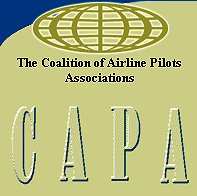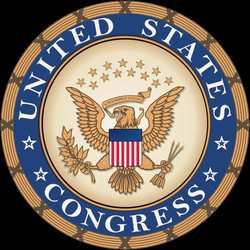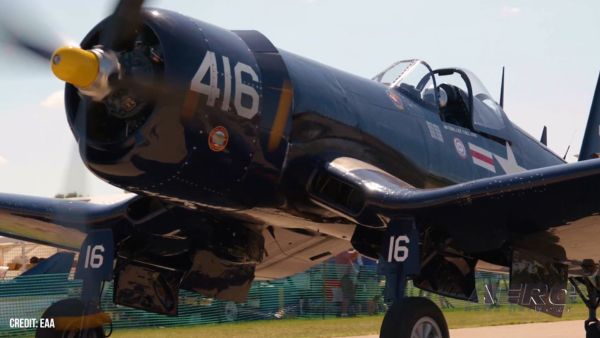Says Cockpit Voice Recorders Should Not Be Utilized For
Punitive Action
 The Coalition of Airline Pilot Associations (CAPA) reached out
to their membership on Friday, encouraging commercial pilots to
voice their opposition to Senate bill 3048. The bill would
allow air carriers to use information obtained from a cockpit voice
recorder (CVR) or a flight data recorder "to discipline or
discharge a pilot or flight engineer for actions that endanger the
safety or well being of passengers."
The Coalition of Airline Pilot Associations (CAPA) reached out
to their membership on Friday, encouraging commercial pilots to
voice their opposition to Senate bill 3048. The bill would
allow air carriers to use information obtained from a cockpit voice
recorder (CVR) or a flight data recorder "to discipline or
discharge a pilot or flight engineer for actions that endanger the
safety or well being of passengers."
Senator Jim DeMint (R-SC) introduced S.3048 against the recent
NTSB recommendation that specifically states that CVR data not be
used for punitive purposes. CAPA maintains that any use of CVR data
for punitive actions would destroy voluntary safety reporting
systems like the Aviation Safety Action Program (ASAP) and the
Flight Operational Quality Assurance program (FOQA) and reduce
operational safety.
CAPA is opposed to Senator DeMint's bill and is encouraging
members to call or email their Senator with a request that they
vote against any such legislation for inclusion in the FAA
Reauthorization Bill.
 (S.3048) Text of Legislation:
(S.3048) Text of Legislation:
To improve air safety by authorizing the limited use by air
carriers of information collected through cockpit voice recorders
and flight data recorders, to prohibit tampering with such devices,
and for other purposes. Be it enacted by the Senate and House of
Representatives of the United States of America in Congress
assembled,
SECTION 1. SHORT TITLE.
This Act may be cited as the 'Pilot Professionalism Assurance
Act'.
SEC. 2. USE OF FLIGHT INFORMATION.
(a) AUTHORIZATION.-Notwithstanding any
other provision of law, or any provision in a private contract, air
carriers may use information obtained from a cockpit voice recorder
or a flight data recorder-
(1) to discipline or discharge a pilot
or flight engineer for actions that endanger the safety or well
being of passengers;
(2) to defend itself in any discipline or discharge grievance
proceeding;
(3) to evaluate or monitor the judgment or performance of an
individual pilot or crew member;
(4) to justify or require a pilot's submission to a proficiency
check or line check; or
(5) for any other purpose relating to improving the safety or well
being of passengers.
(b) CONFIDENTIALITY.-Each air carrier
that has obtained information pursuant to subsection (a) shall keep
such information confidential and may only disclose such
information to the extent required in an administrative or
judicial proceeding.
SEC. 3. TAMPERING WITH COCKPIT VOICE RECORDER OR FLIGHT DATA
RECORDER PROHIBITED
(a) IN GENERAL.-No person may tamper
with, disable, or destroy any cockpit voice recorder or flight data
recorder installed on a commercial aircraft.
(b) PENALTIES.-
(1) IN GENERAL.-Any person who
violates the prohibition described in subsection (a) may be fined
up to $2,000 and imprisoned for not more than 5 years.
(2) COMMERCIAL PILOT.-If a commercial pilot violates the
prohibition described in subsection (a)-
(A) the air carrier employing such
pilot shall immediately terminate such employment; and
(B) the Administrator of the Federal Aviation Administration shall
immediately revoke the airman certificate issued to the pilot under
section 44703 of title 49, United States Code.
 Aero-News: Quote of the Day (04.28.25)
Aero-News: Quote of the Day (04.28.25) ANN's Daily Aero-Term (04.28.25): Decision Altitude (DA)
ANN's Daily Aero-Term (04.28.25): Decision Altitude (DA) ANN's Daily Aero-Linx (04.28.25)
ANN's Daily Aero-Linx (04.28.25) Airborne-Flight Training 04.24.25: GA Refocused, Seminole/Epic, WestJet v TFWP
Airborne-Flight Training 04.24.25: GA Refocused, Seminole/Epic, WestJet v TFWP Aero-News: Quote of the Day (04.29.25)
Aero-News: Quote of the Day (04.29.25)




